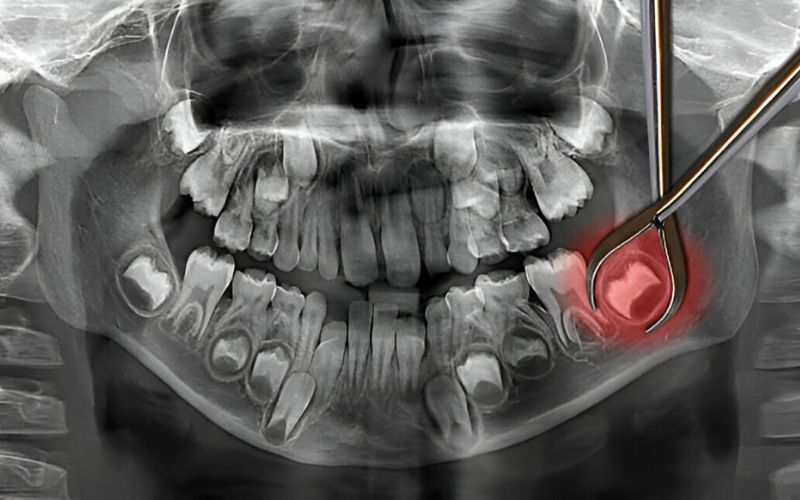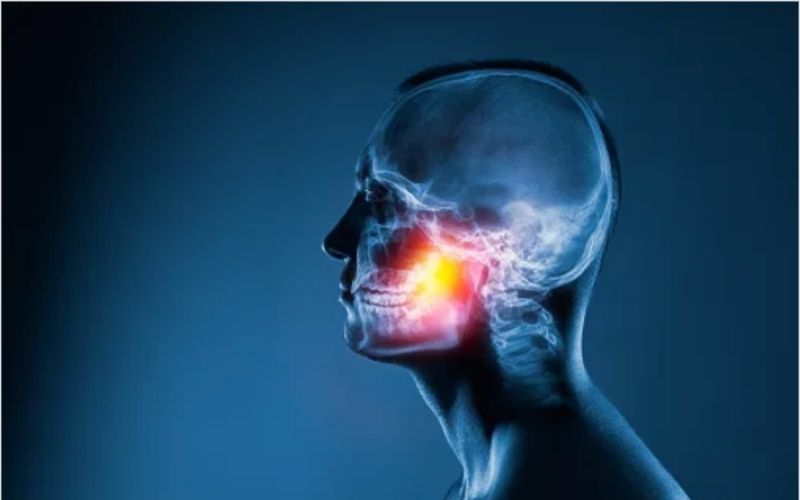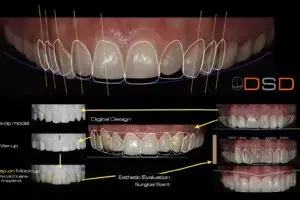When it comes to wisdom teeth removal, misinformation can create unnecessary fear and confusion. By understanding the myths and facts surrounding this common dental procedure, you can approach it with confidence and clarity. This article aims to dispel common myths and provide accurate information to help you make informed decisions about your dental health. Additionally, we’ll explore how wisdom teeth can cause symptoms like headaches, loss of appetite, and even impact your sense of taste.
Are You Considering Wisdom Teeth Exraction?
Schedule a consultation today to discuss your concerns and learn more about the wisdom teeth extraction process
Book Appointment NowMyths About Wisdom Teeth Removal
Myth 1: Everyone Needs Their Wisdom Teeth Removed

One of the most prevalent myths is that everyone must have their wisdom teeth removed. The truth is, not everyone needs this procedure. Wisdom teeth, also known as third molars, are the last set of teeth to develop, usually emerging in late adolescence or early adulthood. Some people have enough space in their mouths to accommodate these teeth without issues. Regular dental check-ups can help determine if your wisdom teeth pose any potential problems, such as crowding, infection, or impaction.
Myth 2: Wisdom Teeth Removal is Extremely Painful
Advancements in dental techniques and anesthesia have significantly reduced the pain and discomfort associated with teeth removal. Most patients experience only mild discomfort during the procedure, thanks to local anesthesia or sedation. Post-operative pain can be managed effectively with prescribed pain medications and proper aftercare. Following your dentist’s instructions for recovery can ensure a smooth and relatively pain-free experience.
Myth 3: Recovery Takes a Long Time
The recovery period after wisdom teeth removal varies from person to person, but it’s typically shorter than many people expect. Most patients can return to their normal activities within a few days. Swelling and mild discomfort are common in the first few days post-surgery, but these symptoms usually subside within a week. Following your dentist’s aftercare instructions, such as resting, eating soft foods, and avoiding strenuous activities, can help speed up the recovery process.
Myth 4: Wisdom Teeth Removal Causes Long-Term Problems
While complications from wisdom teeth removal can occur, they are relatively rare and often preventable. Potential issues like dry socket, infection, or nerve damage can be minimized by choosing an experienced oral surgeon and adhering to post-operative care guidelines. Regular follow-ups with your dentist will also help monitor your healing progress and address any concerns promptly.
Myth 5: Removing Wisdom Teeth Affects Your Bite and Jaw Alignment

Concerns about bite and jaw alignment are common, but proper wisdom teeth removal should not negatively impact these aspects. In fact, leaving problematic wisdom teeth in place can lead to misalignment and crowding issues. Your dentist will carefully evaluate your teeth and jaw structure to ensure that removing your wisdom teeth will not adversely affect your bite or alignment.
Myth 6: Wisdom Teeth Should Be Removed As Soon As They Emerge
There is no universal timeline for removing wisdom teeth. Some dentists recommend removal as a preventive measure, especially if x-rays show potential future problems. However, if your wisdom teeth are healthy, fully erupted, and do not cause any issues, immediate removal may not be necessary. Your dentist will consider factors like your age, oral health, and the position of your wisdom teeth before making a recommendation.
Myth 7: You Can’t Eat Normally for Weeks After Surgery
While it’s true that you’ll need to modify your diet temporarily after wisdom teeth removal, the restrictions are manageable and short-term. Soft foods such as yogurt, applesauce, mashed potatoes, and smoothies are recommended for the first few days. Gradually, you can reintroduce more solid foods as your healing progresses. Following your dentist’s dietary guidelines will help ensure a smooth recovery.
Can Wisdom Teeth Cause Headaches?
When wisdom teeth emerge improperly, they can lead to several issues that may trigger headaches:
- Impaction: If wisdom teeth are impacted, they can press against adjacent teeth or the jawbone, causing discomfort that radiates into the head.
- Infection: Partially erupted wisdom teeth can create a breeding ground for bacteria, leading to infections that cause pain and inflammation, which can result in headaches.
- Sinus Pressure: Upper wisdom teeth, when misaligned, can press against the sinuses, leading to sinus pressure and headaches.
If you experience persistent headaches and suspect your wisdom teeth might be the cause, it’s essential to consult with your dentist. They can perform an examination and recommend appropriate treatment, such as extraction or other interventions, to relieve your symptoms.
Can Wisdom Teeth Cause Loss of Appetite?

Several factors related to wisdom teeth can contribute to a decrease in appetite:
- Pain and Discomfort: The pain from impacted or infected wisdom teeth can make eating difficult and uncomfortable, leading to a reduced desire to eat.
- Swelling: Inflammation and swelling around the gums and jaw can make chewing painful, further discouraging eating.
- Systemic Symptoms: Infections from wisdom teeth can lead to systemic symptoms like fever and malaise, which can reduce appetite.
If you notice a significant decrease in your appetite along with dental pain or discomfort, it’s advisable to visit your dentist. They can diagnose the problem and suggest treatment options to alleviate the pain and restore your appetite.
Can Wisdom Teeth Cause Loss of Taste?
Although it is relatively uncommon, there are a few ways that issues with wisdom teeth could potentially impact your sense of taste:
- Infection and Inflammation: If wisdom teeth become infected or cause significant inflammation in the mouth, it can affect the surrounding tissues, including the taste buds. This can temporarily alter or diminish your sense of taste.
- Nerve Damage: The lingual nerve, which runs close to the wisdom teeth, plays a significant role in taste sensation for the front two-thirds of the tongue. If this nerve is damaged during the eruption of wisdom teeth or during their extraction, it can lead to taste disturbances. However, such nerve damage is rare and often temporary.
- Medications and Anesthesia: Medications and local anesthesia used during wisdom teeth extraction can sometimes cause a temporary alteration in taste.
If you suspect that your wisdom teeth are causing changes in your sense of taste, it’s essential to consult with your dentist. They can evaluate your oral health and determine if your wisdom teeth are the cause.


